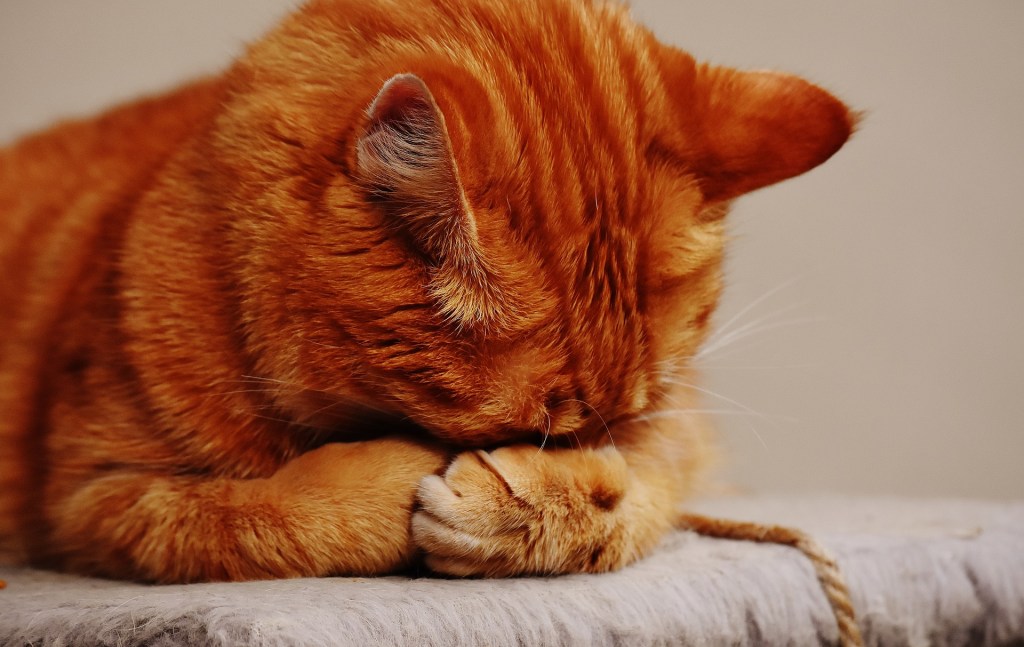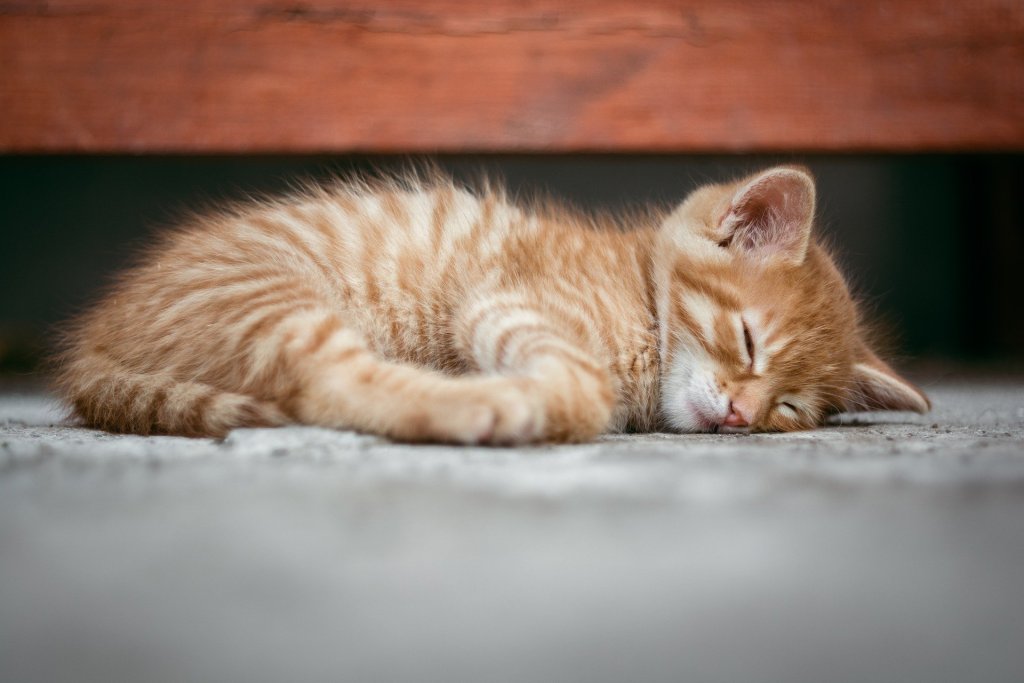Cats are naturally quiet and tend to sleep a lot, so noticing when they’re sick isn’t always simple. Unfortunately, sick cats can get worse very quickly, so it’s important to get your cat veterinary help right away if you think he’s under the weather. While every cat is a little bit different, there are some common symptoms that you can be on the lookout for. These changes in your cat’s behavior and body can indicate that there’s something wrong. When you understand how to tell if a cat is sick, you’ll be better prepared to get your cat the help he needs so he can get back to feeling better again.

Appearance changes
According to VCA Hospitals, you may notice several changes in your cat’s appearance that may indicate he’s sick. Your cat might look a little unusual, move stiffly or awkwardly, and carry his tail in an unusual way. These changes might be dramatic or subtle.
Your cat’s coat appearance may also change. Cats who are sick often stop grooming themselves or only groom themselves minimally, so your cat’s coat might look greasy or matted. You might notice more dandruff than usual.
In contrast, cats who aren’t feeling well may sometimes start to groom themselves too much. This overgrooming might result in bald patches or a loss of fur over your cat’s entire body.
Water intake changes
Seven Hills Veterinary Hospital suggests that you monitor your cat’s water bowl to make sure that he’s healthy. Certain disorders like diabetes can cause your cat to suddenly drink larger amounts of water than he normally does. These diseases are treatable, but it’s important to recognize if your cat’s drinking habits change so that you can begin treating the illness quickly.
Energy level changes
VCA Hospitals notes that illness can result in changes in your cat’s energy levels, too. Cats who are sick often hide and stop socializing with you, but some sick cats can become needy and clingy. Most sick cats experience lower energy, so if your cat starts sleeping more and is reluctant to play, there might be something wrong.
If your cat starts to move around less, this reduced activity might be related to pain. Arthritis can cause cats to have difficulty moving, so your cat might stop sleeping in some of his favorite spots, or he might move differently than he normally does.

Appetite changes
According to Seven Hills Veterinary Hospital, your cat’s appetite is also a good indicator if something is wrong. If your cat starts to refuse to eat his favorite food or treats, it’s important to recognize that something is wrong. A cat’s refusal to eat could be prompted by an stomach upset, a tooth infection, cancer, or many other health issues. If your cat normally cleans up his meals but suddenly shows little interest in food, this is a sign that you shouldn’t ignore.
Frequent vomiting
Seven Hills Veterinary Hospital explains that, while it’s perfectly normal for cats to vomit up a hairball now and then, increased vomiting can be a symptom of a serious problem. If your cat vomits twice or more per day, vomits up food that looks unusual, or vomits up blood, contact your vet right away. Too much vomiting can cause your cat to become dehydrated, which can be dangerous.
Any of these symptoms can be cause for concern, which is why it’s helpful to observe your cat closely and get to know his habits. Monitor how much food and water he eats each day, keep track of how often he vomits, and try to keep an eye on how much he sleeps on average. The better you know your cat, the sooner you’ll be aware if something isn’t right and the sooner you’ll be able to get him seen by a vet and started on any necessary treatments.
When in doubt, call your vet
If your cat experiences any of these symptoms, it’s important to get him to your veterinarian. Cats are naturally stoic, so even small signs that your cat isn’t feeling well may indicate that there’s a much larger problem going on. If you notice these symptoms, call your vet right away and describe exactly what’s going on. The more information you can provide, such as when you first noticed the symptom and any other relevant details, the better the chance your vet has to quickly diagnose your cat. Many illnesses and injuries are treatable, so getting your cat care right away means you can help him start feeling better sooner.
Editors' Recommendations
- Wondering why cats chirp? Fascinating reasons why your cat chirps at birds (and you)
- How to cat-proof your balcony before the unthinkable happens
- Your cat trilling is actually a good thing – here’s why
- Is your cat hissing and growling a lot? These 5 tips will work wonders on your feline friend
- The kind of nutty behavior to expect if you don’t neuter your cat



